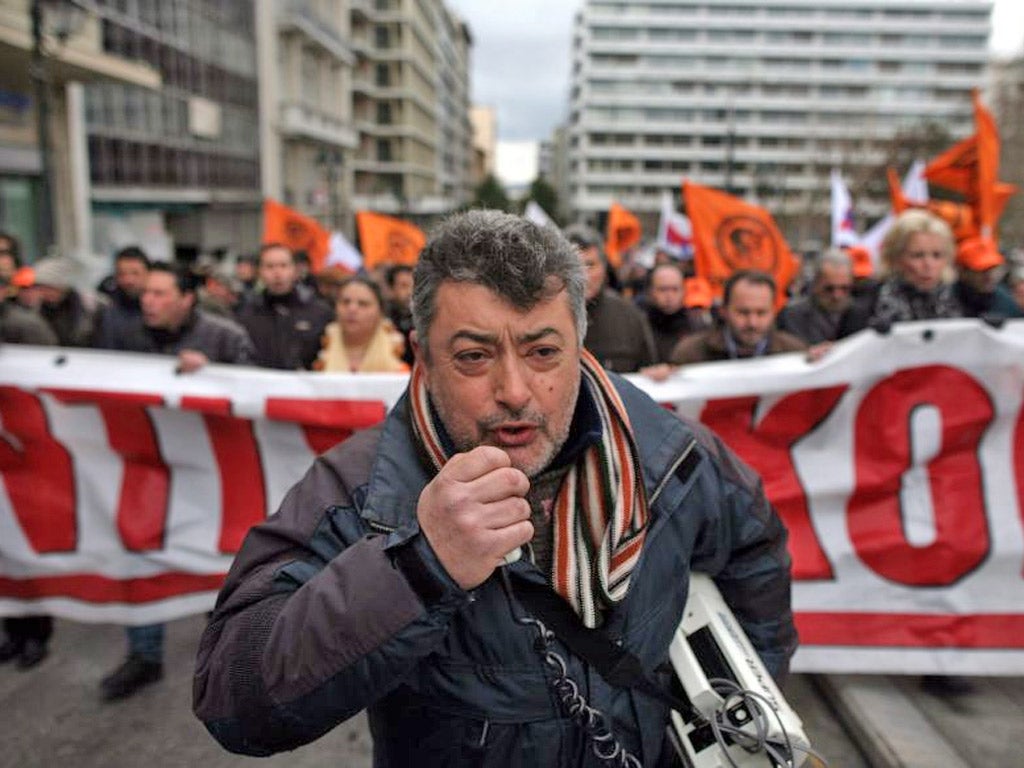Athens agrees austerity deal in bid to unlock €130bn bailout

Greece yesterday unveiled a political deal over budget cuts that should unlock a €130bn (£109m) aid package and enable Athens to avoid a potentially catastrophic default next month. After a week of fraught negotiations between the three parties that make up Lucas Papademos' coalition government, the Prime Minister's office yesterday confirmed that agreement on €3.3bn of new spending cuts had been secured.
Greece's financial backers in the European Union had said that they would not deliver the aid that Athens needs to redeem €14.4bn of its bonds next month unless the government committed itself to sweeping new austerity measures. The cuts package, equal to around 1.5 per cent of Greece's GDP, will impose deep cuts in the minimum wage and will result in thousands of public sector job losses.
The announcement prompted a furious response from the Greek trade unions, who promised more protest strikes today and over the weekend. There was also a ministerial resignation in response to the cuts agreement. The Deputy Labour Minister, Yannis Koutsoukos, a member of the socialist Pasok party, walked out of the government accusing Greece's foreign creditors of "blackmail".
The financial markets reacted with relief to the news of the deal yesterday afternoon, sending stock markets and the value of the euro higher. But there are further political hurdles to be crossed before Athens secures its new funding. Eurozone finance ministers need to approve the Greek budget package before they sign off on the €130bn bailout.
This was originally due to take place at a Euro Group meeting in Brussels last night, but ministers from Germany and the Netherlands said that they did not have sufficient detail to make their decision.
Join our commenting forum
Join thought-provoking conversations, follow other Independent readers and see their replies
Comments
Bookmark popover
Removed from bookmarks